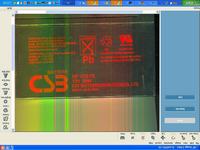ZincBear
Member level 2
magnetron input voltage
Hi all,
i am trying to power up a magnetron with a battery. However, a magnetron requires a high DC input power of >1kW and a high input voltage of >1kV. Is there a DC-DC converter/transformer that is capable of such a conversion?
Hi all,
i am trying to power up a magnetron with a battery. However, a magnetron requires a high DC input power of >1kW and a high input voltage of >1kV. Is there a DC-DC converter/transformer that is capable of such a conversion?
